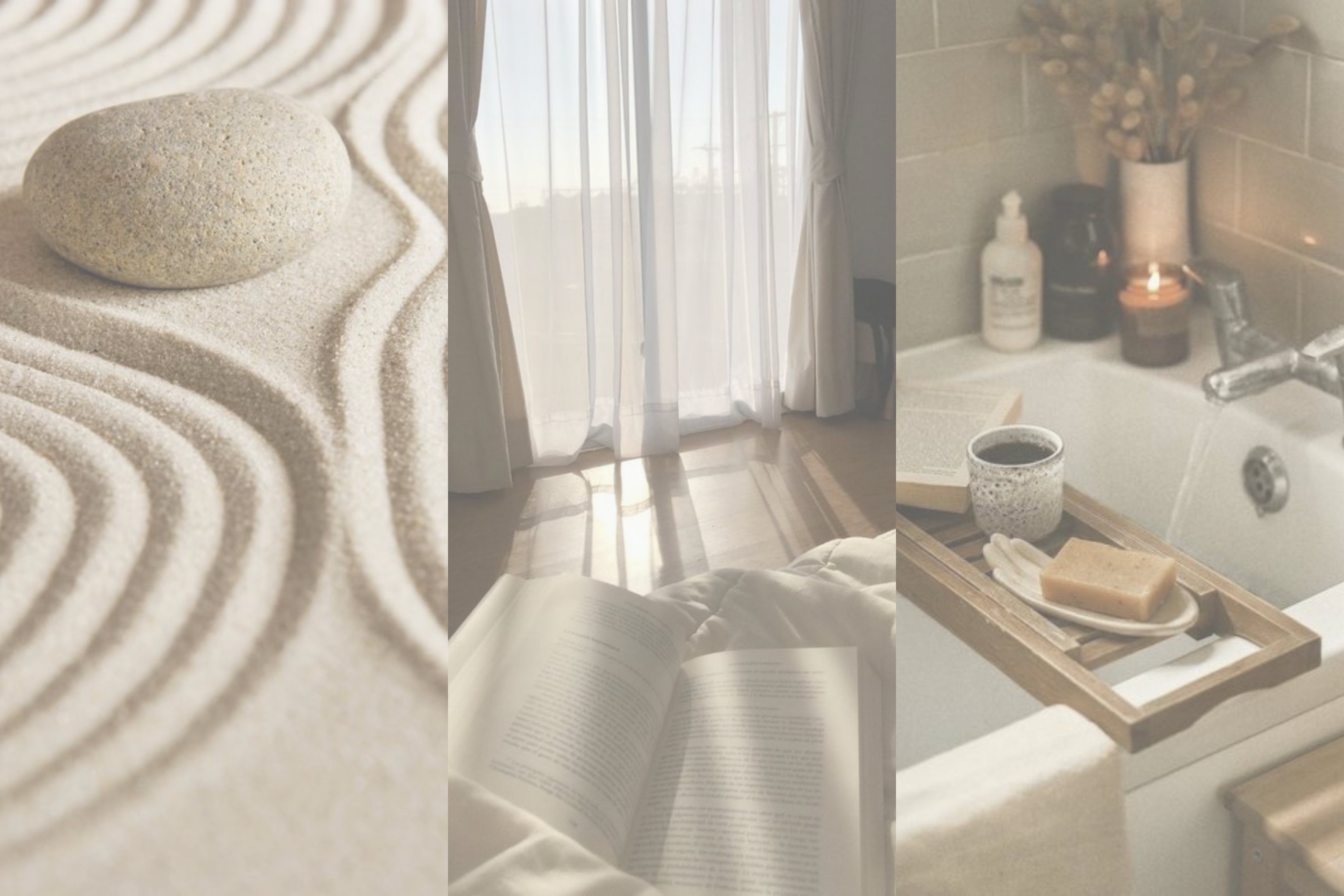
How to Start Your Rest Journey: Simple Tips for Better Sleep
In today’s fast-paced world, rest is more important than ever. We often focus on maximizing productivity during the day, but what about the quality of our sleep? The foundation of well-being starts with rest, and the way we approach our sleep can make all the difference. If you’re ready to make 2025 your year of prioritizing rest, here are a few tips to get started:
1. Dress for the Occasion
Getting into your pajamas is more than just a signal to your body that it’s time to wind down—it’s a way to mark the transition from daytime hustle to nighttime relaxation. Just like you would dress up for an important meeting, going to sleep is a meeting with yourself. How you prepare for this meeting matters. Wearing comfortable, well-fitted sleepwear that supports your body’s natural relaxation process can help signal to your brain that it’s time to unwind. Choose sleepwear that’s not just cute, but functional—material that supports thermoregulation, and helps keep you comfortable as you ease into rest.
2. Get Your Phone Away from Your Bed
We’ve all been there—scrolling through our phones late at night or checking emails first thing in the morning. But, if there’s one investment to make, it’s in an alarm clock. Ideally, opt for one that wakes you up gently with light rather than sound. This removes the temptation to check your phone at bedtime and first thing when you wake up. It also helps if you wake up in the middle of the night, as avoiding your phone keeps your mind from racing and makes it easier to fall back asleep. Keeping your phone out of arm’s reach encourages you to focus on rest, not distractions.
3. Have a Wind-Down Routine
Think of a wind-down routine as a gentle way to transition from the activities of the day into a restful state. Whether it’s just five minutes of breathwork or a full hour dedicated to calming your body and mind, creating a routine that signals to your body it’s time for rest is key. This could include stretching, journaling, reading, or practicing mindfulness. The important part is that you’re giving yourself the time and space to relax and prepare for deep, restorative sleep. Consistency is the key to seeing improvements in your sleep quality over time.
4. Invest in a Good Quality Eye Mask
Even if you can fall asleep with some light, sleeping in total darkness is crucial for optimal rest. Light exposure during sleep can interfere with melatonin production, disrupting your body’s natural sleep cycle and preventing you from reaching deeper, more restorative stages of sleep. A high-quality eye mask blocks out external light sources, helping to create a pitch-black environment that promotes melatonin production. This supports your body’s natural circadian rhythm, leading to better sleep quality and more restful, uninterrupted sleep.
5. Create a Sleep-Friendly Environment
Your sleep environment plays a huge role in how well you rest. In addition to an eye mask, consider making your bedroom a sanctuary for sleep. This could mean adjusting the temperature to a cool, comfortable setting, investing in quality bedding, and removing any clutter that might cause stress or distraction. Try to make your bedroom a place where relaxation comes easily—one that’s inviting and conducive to rest.
6. Set a Consistent Sleep Schedule
Our bodies thrive on routine, and a consistent sleep schedule helps regulate our internal clock. Try to go to bed and wake up at the same time every day—even on weekends. This consistency helps to optimize your body’s natural rhythms, making it easier to fall asleep and wake up feeling refreshed. By setting a sleep schedule, you’re signaling to your body that rest is a priority.
7. Limit Stimulants Before Bed
What you consume before bed can impact how well you sleep. While it’s tempting to enjoy a late-night coffee or snack, avoid heavy meals, caffeine, and alcohol close to bedtime. These stimulants can interfere with your body’s natural ability to wind down. Instead, opt for a light snack or herbal tea that promotes relaxation—like chamomile or valerian root—helping your body get into sleep mode more easily.
8. Practice Gratitude or Journaling
Before bed, try to clear your mind by reflecting on your day. Writing in a journal or practicing gratitude can help you release any tension or worries that might interfere with your sleep. When you go to bed with a calm mind and a positive outlook, your body and brain are more likely to enter restful sleep. Consider the following prompts:
- What are three positive things that happened today?
- What was the highlight of your day?
- What was challenging about the day? Did you do anything to overcome it?
- What is something you'd like to let go before going to sleep?
- What are your intentions for tomorrow?
Final Thoughts
Starting your rest journey isn’t about making big changes all at once. It’s about taking small steps to prioritize your well-being and create a sleep routine that works for you. From choosing the right sleepwear to establishing a consistent bedtime routine, each choice you make signals to your body that rest matters. By setting yourself up for quality sleep, you’re not just resting—you’re nurturing your overall health, well-being, and productivity for the day ahead.
Remember, rest is not a luxury. It’s an essential part of living a balanced, healthy life. Your journey starts with one restful night—and continues with every intentional step you take to prioritize your sleep. Sweet dreams!


